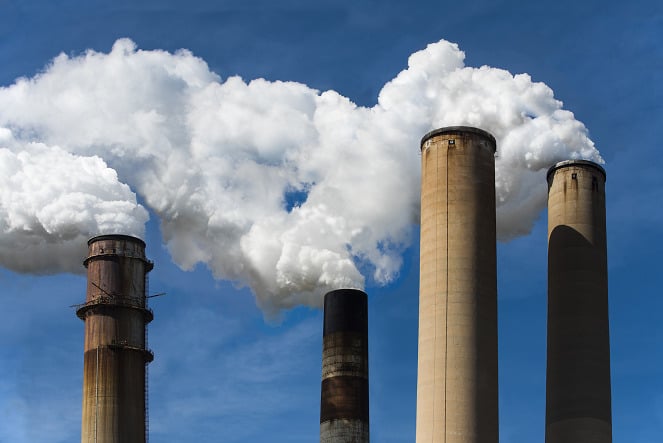The Economic Affairs Committee (EAC) has called on the government to act now to avoid a disorderly transition to net zero.
In a new report, the committee sets out key short-term actions the government should take if it is to meet its net zero target against the background of the energy crisis.
“The impact of Russia’s invasion of Ukraine on energy prices has been a wake-up call on how vulnerable our energy security is,” said Lord Bridges of Headley, chair of the House of Lords Economic Affairs Committee.
“The Government has set ambitious targets for low-carbon power generation, but there is a gap between those ambitions and practical plans for delivery. If we don’t plug that gap, and fail to ensure that our energy is reliable, affordable and renewable, our transition to net zero will be disorderly – and we will all pay the price.”
The report – dubbed Investing in energy: price, security, and the transition to net zero – therefore sets out pressing actions such as designing market models for low carbon technologies like long-duration storage, blue and green hydrogen and carbon capture and storage, to make energy pricing more predictable.
According to research from Aurora Energy Research earlier this year, Britain will need 24GW of long-duration storage to reach net zero and suggested a cap and floor mechanism would be the best way to support the technology. This followed KPMG also finding that a cap and floor mechanism would be best placed to supporting the technology over mechanisms such as the Contracts for Difference scheme, a Regulated Asset Value model and a reformed Capacity Market.
Secondly, the EAC has suggested that the government should include energy security objectives in the National Planning Policy Framework along with climate change objectives.
It should enable more investment in the North Sea, but ensure that any extension of oil and gas exploration or investment is focused on projects with short lead times and payback periods, to limit the risk of stranded assets.
As part of the government’s recent British Energy Security Strategy, a new licensing round is planned for North Sea oil and gas for the autumn, but given the role of gas in driving the current energy crisis – with gas prices more than four times that of new renewables – there are concerns around long-term support of the sector.
The government should work to ensure the UK Infrastructure Bank focuses on innovative and potentially riskier projects, to signal to investors that these projects are viable.
It should signal as soon as possible whether it intends to move forward with a levy on electricity generators, the EAC said, to avoid damaging investor confidence further.
This follows a windfall tax of 25% on oil and gas companies announced in May, to support a number of schemes designed to help consumers amid the record high energy bills. While there has been consideration of extending this to cover electricity generators, many have warned that doing so would risk future investment in energy infrastructure.
According to reports earlier this month, the Prime Minister Boris Johnson’s spokesperson Max Blain, stated that the government has ditched such a levy however.
Finally, the EAC suggests that within its forthcoming critical minerals strategy the government addresses the steps needed to avoid becoming reliant on strategic competitors, notably China, for critical minerals needed for low-carbon technologies. It should examine its supply chain vulnerabilities and policies to mitigate them.
Beyond these actions, the EAC’s report also sets out our key steps that can be taken in the short term to boost energy security and affordability.
Over the next three to five years, the government should speed up the pace of the rollout of home insulation and other energy efficiency measures, re-examine its ambitions for onshore wind, urgently seek an agreement with European partners on energy co-operation to manage supply emergencies, and continue to maintain existing energy generation in the short term, including coal-fired power stations where necessary – this follows both EDF and Drax agreeing to keep coal-fired power stations running through the upcoming winter.
In particular, the lack of support and installation of insulation and energy efficiency measures in Britain has been repeatedly flagged. The Climate Change Committee for example, highlighted energy efficiency as a particular sticking point for decarbonisation in its most recent progress report.
The final call to action from the EAC focuses on the need to ensure that the financial sector and its regulators are playing a critical role in driving net zero.
It suggests that regulator set out high-level principles on how they are interpreting the Chancellor’s instructions on energy security, that any green taxonomy avoids giving the impression that projects are either green or brown and in doing so stifles innovation, and that businesses are supported to make climate-related financial disclosures.
“Action is needed to build investor confidence, mobilise more capital and accelerate the deployment of renewables in the decades to come,” said Lord Bridges of Headley.
“The message to the Government is clear: act now to avoid falling into the gap.”





